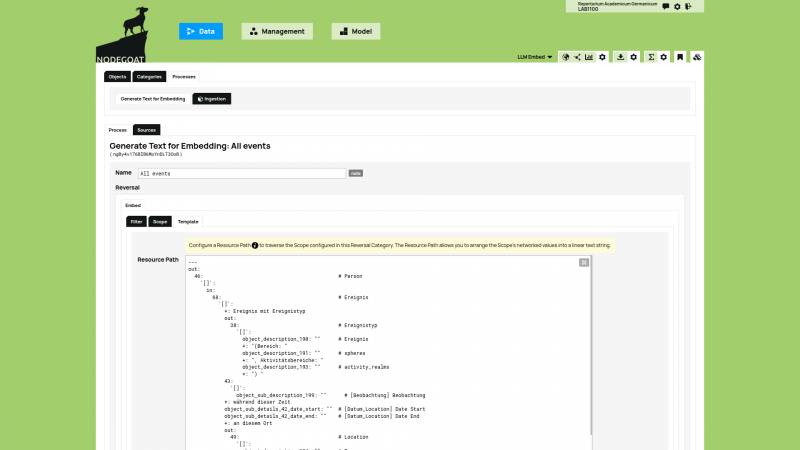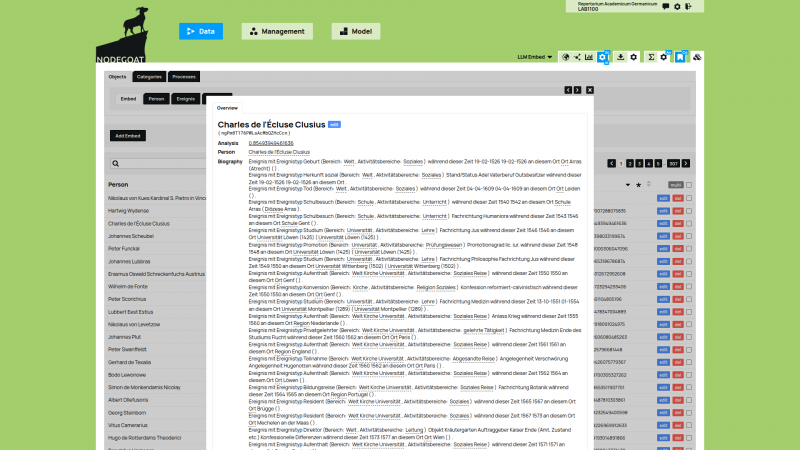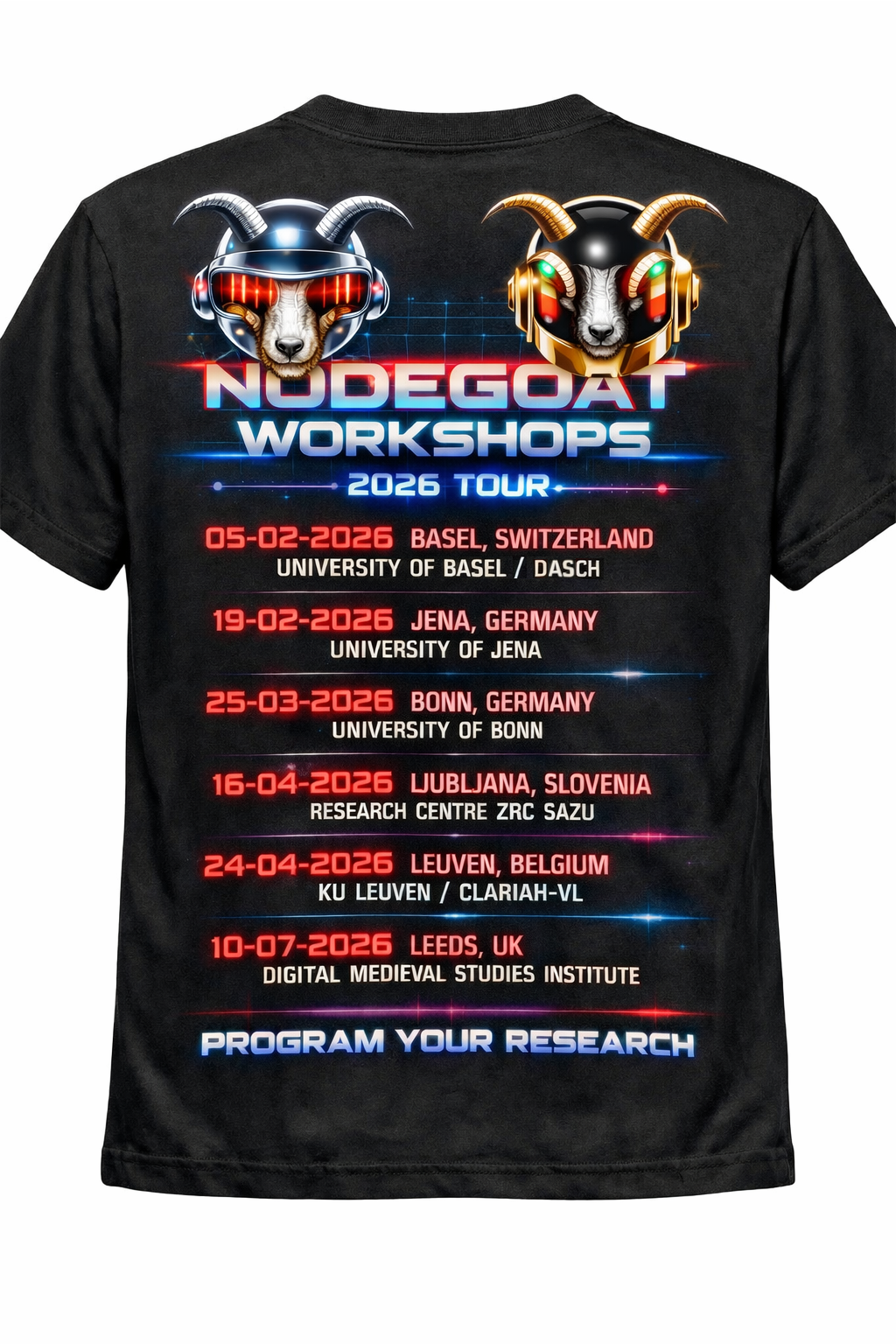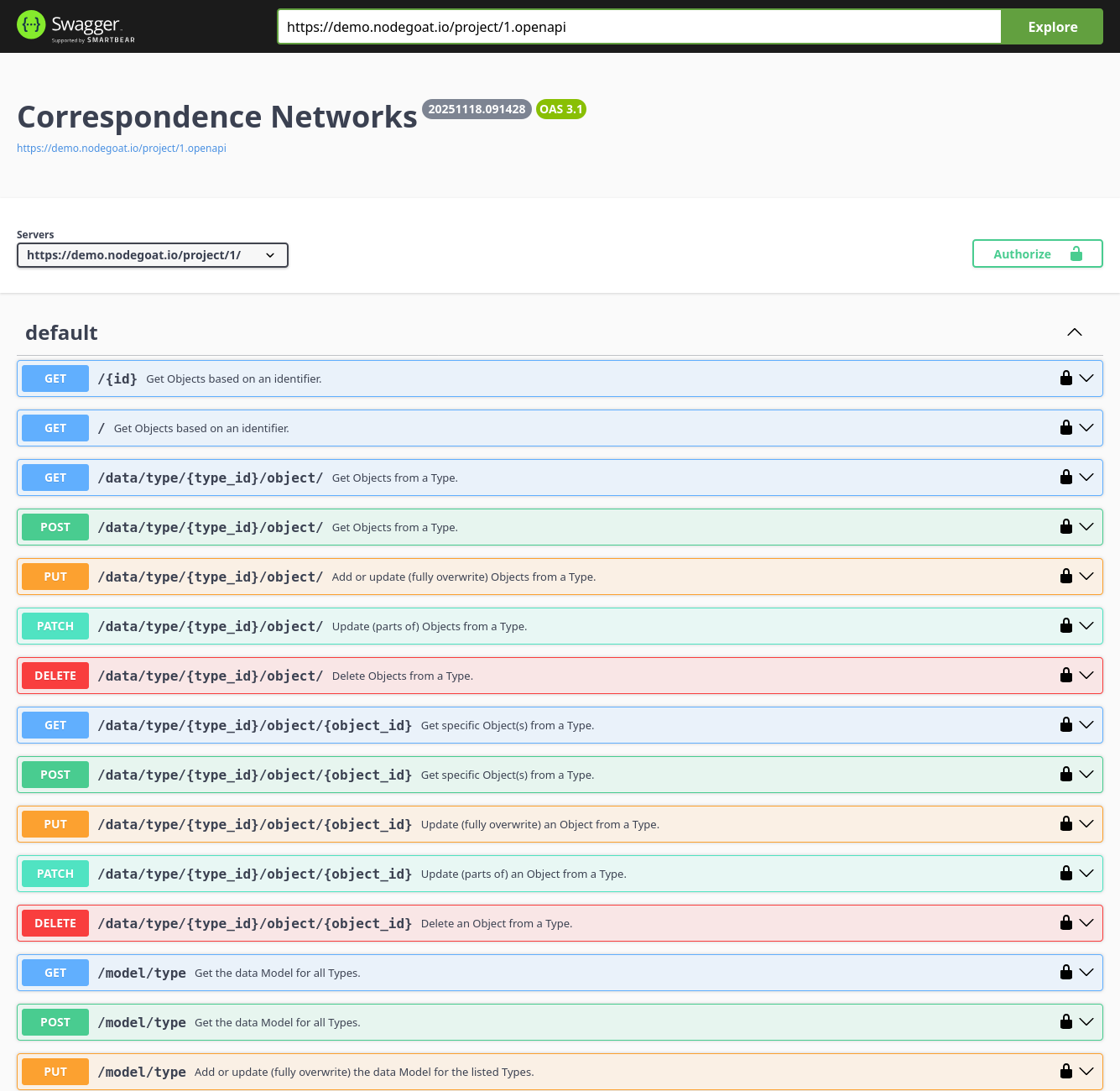Results of the CEU Summer University on Digital Approaches to Cultures of Dissent in Eastern Europe
CORE Admin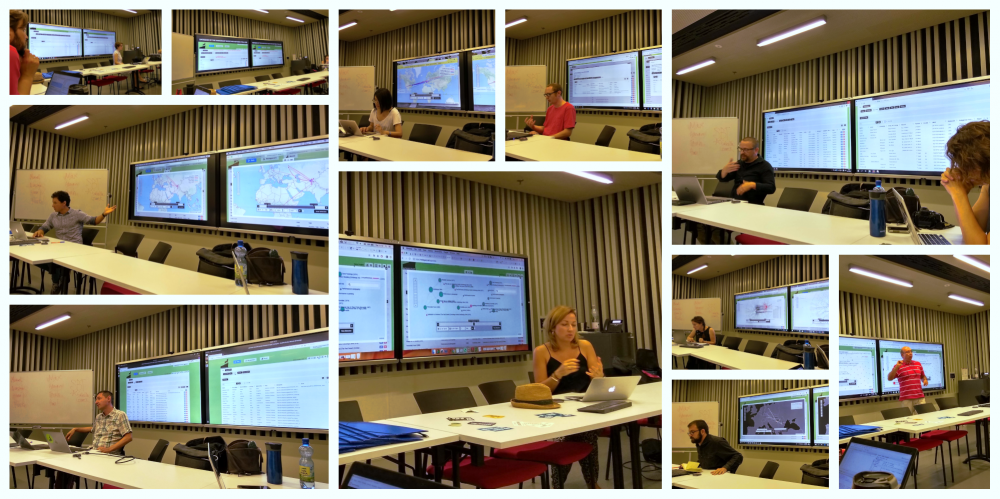
During the 2019 summer university 'Cultures of Dissent in Eastern Europe (1945-1989): Research Approaches in the Digital Humanities' at the Central European University, we taught a group of 20 researchers how to setup a research project in nodegoat.
This summer university was organised by the NEP4DISSENT network (New Exploratory Phase in Research on East European Cultures of Dissent, COST Action 16213), and also featured courses on text analysis and network analysis. The faculty consisted of Jessie Labov (Center for Media, Data and Society, CEU), Piotr Wciślik and Maciej Maryl (both of the Institute of Literary Research of the Polish Academy of Sciences), Estelle Bunout (Luxembourg Centre for Contemporary and Digital History), Julia Perczel (Department of Network and Data Science, CEU), and Pim van Bree and Geert Kessels of LAB1100.
The participants of this 7-day seminar first got the opportunity to learn how to navigate and explore preconfigured databases in a nodegoat research environment. Data for these exploratory exercises were generously provided by the Vera and Donald Blinken Open Society Archives. This data allowed the participants to get a good feel of what can be achieved when a research project has a well-thought-out relational data model at its basis. We also used this data during the classes on named entity recognition (NER) and geographical mapping to show how an NER process can pick up locations that can be plotted on a map.
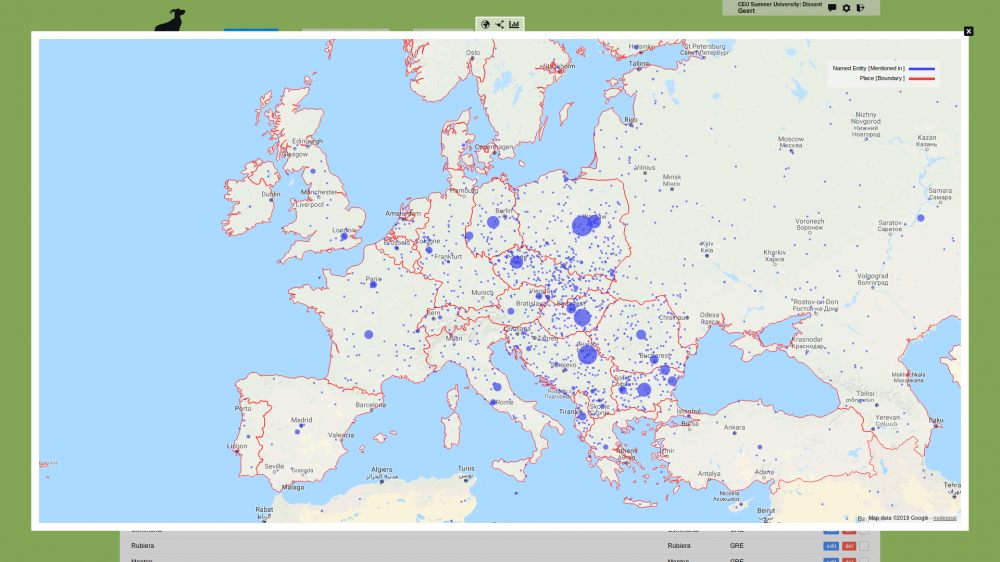
Once everybody got a good understanding of how a data model can be conceptualised and implemented in nodegoat, participants could start working on their own research projects. Topics for research projects that were setup in nodegoat included an analysis of socialist disco culture, a Russian-German network of group exhibitions on Moscow conceptualism, book distribution networks setup by George Minden, merging bibliographies of samizdat publications, networks of Russian emigre poets, mapping subversive Romanian groups, and a geographic analysis of the Greek society Filiki Eteria.
